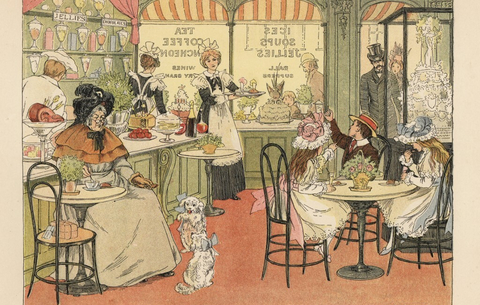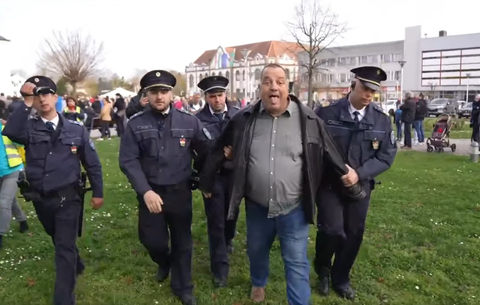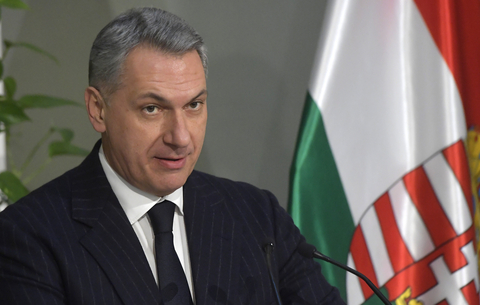Literature will not survive the 21st century
The 96-year-old writer Gyorgy Faludy worries that literature will not survive the 21st century. The art of conversation is in decline, he believes.
© Túry Gergely |
I despair about what the book trade and the literary world produce nowadays. There were politicians in the past as well, but they weren't at the centre of things. We sat in cafes and talked about everything. Book week was a big event. In the 1937, I remember queues stretching from the Opera to Vorosmarty ter to meet Sari Fedak and Zita Szeleczky. The queues reached as far as the Korut, where I worked in the Nepszava newsroom. That's when I published my book on Villon. I self-published because nobody wanted to release it. I had 1000 copies printed, and they were all sold. And the book ran into many impressions. I saw about 30 copies of it in a window display when I was passing through Miskolc on my way to Lillafured. I asked the bookseller how they'd got there. He said they had bought them from a wholesaler. I asked the chief printer at the press. He said they had printed another 2000 copies on the sly. I asked him to come and stand as a witness in court. He said he'd do so if I found him another job - which was of course impossible in those days.
Maybe it's easier nowadays - just about everything gets printed. How do you pick books out from this flood?
It's impossible. So many books are published that it's impossible to find your way through the pile. Once, publishers went to great lengths to publicise their wares amongst the reading public. They don't any more. After the success of Villon, in March 1938, I offered some of my poetry translations to the publishers Uj Idok. They offered me a contract to translate the 1000 most beautiful poems in world literature. When the publisher's head, Miss Andrassy, who looked rather like a woman from an Italian renaissance painting, asked me when I'd have it ready, I asked for four years. "I have a lot of reading to do: I'll submit the manuscript after the World War," I said. She replied: "After the World War? It's already been." She couldn't believe there'd be another. In the end, we agreed on a deadline of 1942. I finally completed the first version of the anthology in spring 1988. It's now being reissued, with another 500 poems. I don't regret chasing down great poems all my life. I learned something that few people know: that Japanese, Chinese, Persian and Arab poetry has just as much value as European poetry.
You've got another three reissues coming up, and the third volume of your book My merry days in hell is coming out shortly, which tells your adventurous life story. Are you escaping into the past?
I'm not hiding from the present or from the world, even if what I'm publishing at the moment might suggest otherwise. My novel Karoton , for which I lost the Hungarian manuscript, and which I had to translate back out of the English, is set in the time of the persecution of the Christians, but it is an allegory about the Communists. Until they won, they were fighting with honour, but once they were in charge the Communist fighters were just whores. I translated Heine as a protest against Hitler, since I couldn't criticise him directly. So I can say I'm the only one to have written poetry against both Hitler and Stalin.
It seems that artists have to play to the gallery nowadays if they are to become widely known. You yourself have appeared on the front page of a magazine in a state of undress.
I've done things like that a few times, but I try to avoid it. I'm not forced to, fortunately, people know me regardless.
Nowadays, the good writer is the one who gets the media attention, while lots of good books go unnoticed.
There were good and bad books in the past, but there were some good critics whose taste you could trust. I miss their presence.
So name a few good poets!
Sandor Kanyadi, Geza Szocs or Janos Denes Orban, who writes great poems.
They're all from Transylvania.
Yes, I think Transylvanian literature is the beset branch of Hungarian literature. Here at home, literature is second- or third-class.
Why is it so much worse here, where conditions are so much better?
© Túry Gergely |
Maybe it was easy for you: there was not TV or video. Now literature has to sail into a headwind.
There's something to this. At the time, I thought radio was stealing literature's audience. But it didn't. Then came television, and I was convinced it wouldn't. But it did.
But we are seeing a renaissance in the theatre. Maybe TV is so bad now that people want to see something better. Theatres are getting fuller and fuller. Maybe poetry will be the next beneficiary of this trend?
I don't think so. In the US, people read 35 to 40 per cent fewer books now than 20 years ago. And the numbers continue to fall. Of courses, we've seen this before. Around 350AD, people stopped reading. At the time of Marcus Aurelius, there were 88 libraries in Rome. Under Constantine the Great there was only one. I think we stand before a great crisis, which is consuming literature.
JÁNOS DOBSZAY
English version
hvg.hu
2006. május. 29. 09:50
Hungarian Academy of Sciences
English version
HVG
2006. május. 29. 09:59
The scientist returns
English version
hvg.hu
2006. május. 25. 10:22
Tickets, please!
English version
hvg.hu
2006. május. 29. 09:53
On the minority councils
English version
HVG
2006. május. 22. 10:47









